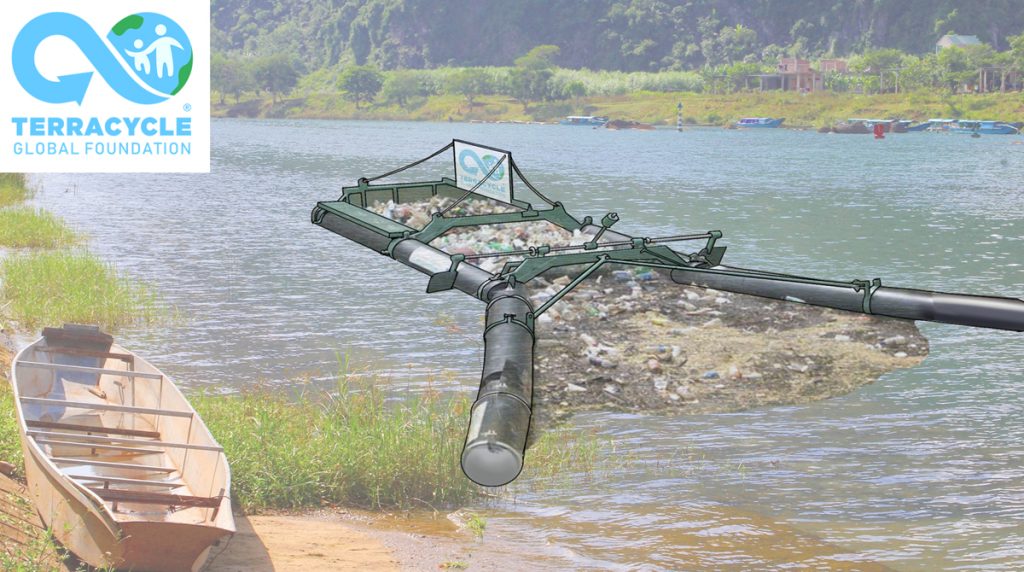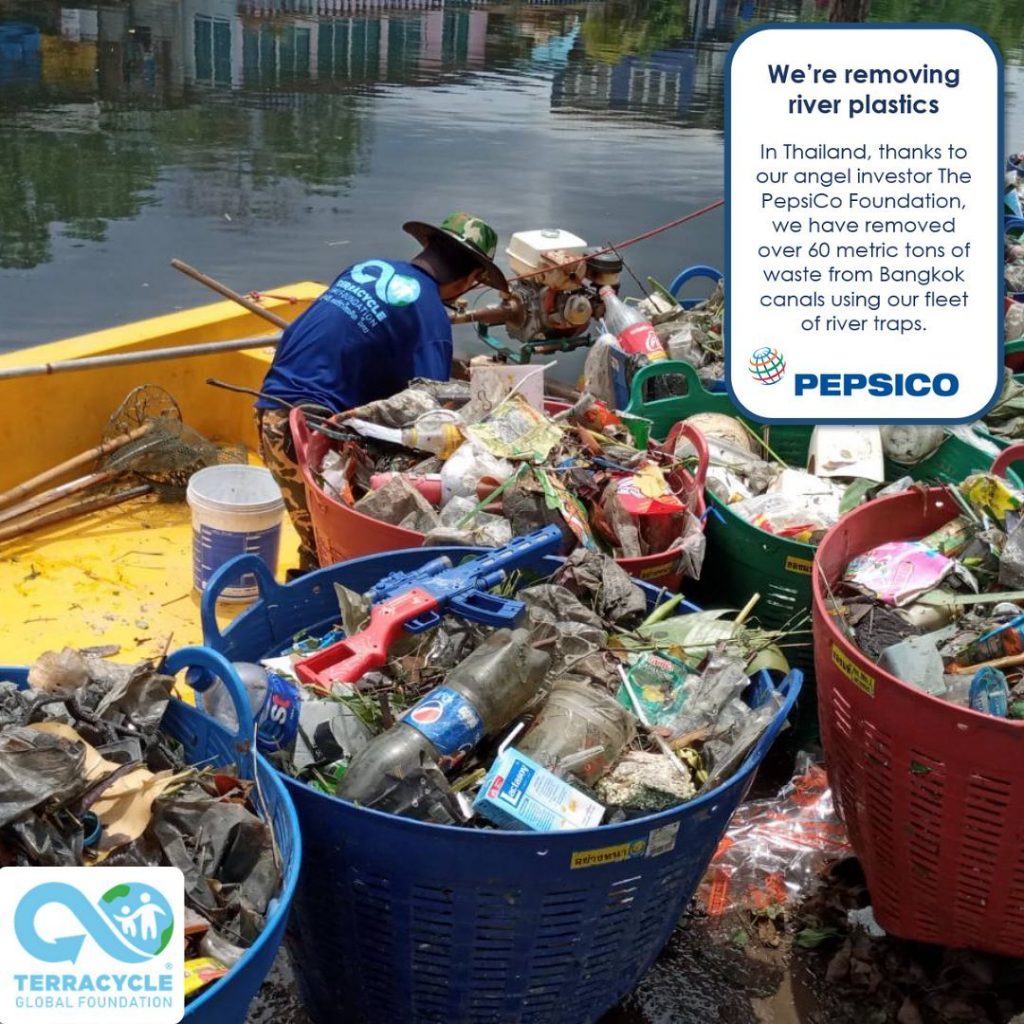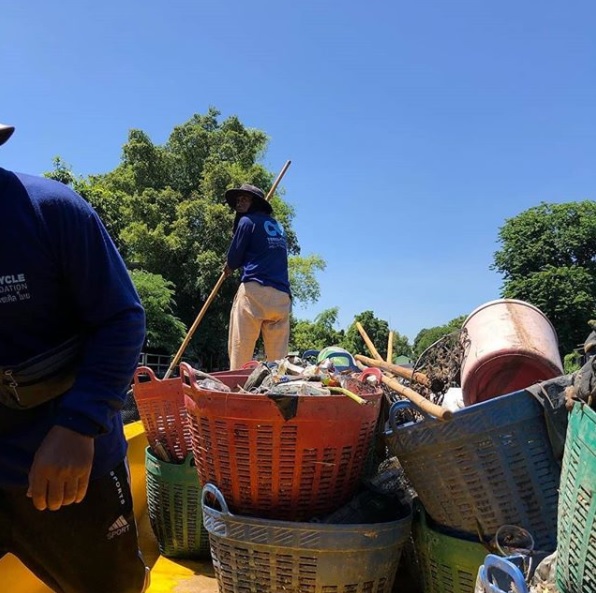Fishing gear and nets are certainly a large contributor to ocean plastic pollution. However, 80% of it actually flows in from land-based sources and often by way of smaller waterways, such as rivers.

Approximately 82% of plastic debris found in oceans originates from Asia. In many regions of the world, the lack of waste management infrastructure makes it impossible to keep up with waste. Even “highly recyclable” materials end up littered.
That degrades the area and contributes to a global problem. Around a full garbage truck worth of plastic enters the ocean every minute. If nothing changes, that’ll jump to two garbage trucks per minute by 2030 and four per minute by 2050.
What is Terracycle?
The TerraCycle Global Foundation’s core purpose is to reduce the volume of plastic waste found in the world’s waterways. Looking for both environmental protection and economic development in communities.
The organization began in 2019 as a public charity with the initial seed investment from The PepsiCo Foundation. Besides the PepsiCo Foundation, this NGO also receives support from the Coca-Cola Foundation and the Benioff Ocean Initiative. This NGO works mainly in Thailand, with a focus on preventing debris and plastic pollution from entering oceans.

TerraCycle works to stop the tap on ocean plastics by working with governments and the private sector to catalyze change. It also provides environmentally friendly and cost-effective solutions for various applications, from packaging for major global brands to applications such as road or construction materials. Thinking globally and acting locally is key.
Combating Plastic Pollution in Asia
The Thai Foundation is cleaning up waterways and implementing recycling solutions for marine waste by approaching the communities. The Thai Foundation is part of the United Nations World Oceans Day Innovation for Sustainable Ocean event, hosted by the government’s Department of Marine and Coastal Resources (DMCR) in Bangkok earlier this year.
The Foundation has installed special river plastic capture traps in various waterways throughout Thailand. They are designed to intercept plastic debris before it enters the ocean. These devices mobilize local workers from the community to operate and manage them.
In addition to capturing and collecting these plastics before they reach and pollute the ocean, the Foundation finds markets to recycle these traditionally low-value plastics (considered non-recyclable due to degradation, contamination, lightweight, and exposure to UV light).
The plastic itself isn’t the cause of ocean pollution, but rather the lack of investment that prevents it from becoming waste. Cooperation across the public (governments) and private (businesses, nonprofits, and NGOs) sectors can combat plastic pollution by aligning interests to drive change that stays and a healthy, thriving global economy.
Found this useful? Pin it!



